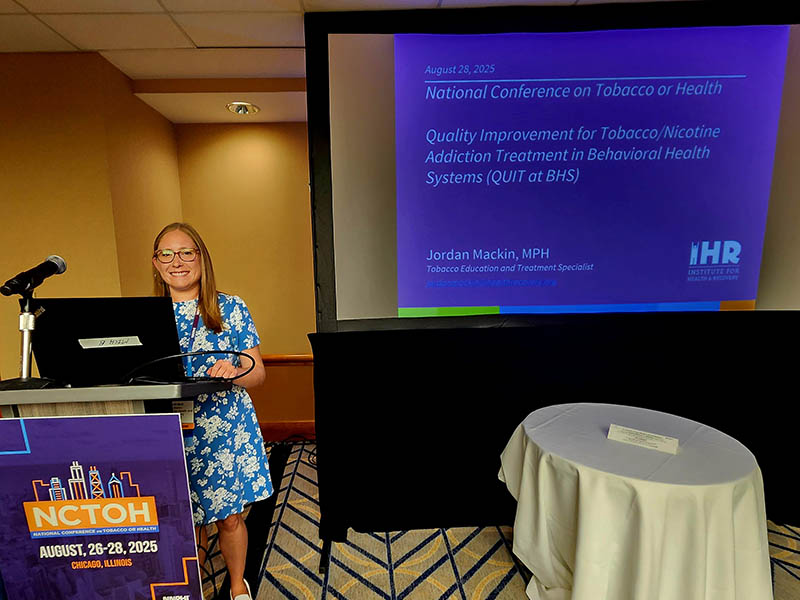Jordan Mackin, Tobacco Education and Treatment Specialist with the Institute for Health and Recovery (IHR), presented two sessions on approaches to tobacco treatment at the National Conference on Tobacco or Health, held August 26-28, 2025.
On Day 1 of the National Conference on Tobacco or Health, Jordan Mackin, a Tobacco Education and Treatment Specialist at IHR’s Tobacco Projects, presented the poster, “The Massachusetts Collaborative for Tobacco Recovery: Transforming the Narrative of Tobacco Treatment in Communities that Exhibit High Acceptance.” The poster highlighted the collaborative efforts to engage people in tobacco treatment through the multi-stakeholder group, the Massachusetts Collaborative for Tobacco Recovery (MCTR). One activity of MCTR was the development and implementation of a Tobacco and Mental Health at the Intersection of Social Identities series, which utilized the Intersectionality framework. The series increased stakeholder engagement among people with lived experiences and providers while also increasing cross-sector collaboration and partnerships to facilitate whole-person treatment models for tobacco/nicotine use and dependence. Conference attendees were able to view the poster and pose any questions during the poster session.

On Day 3, Jordan Mackin also presented at the session, “Quality Improvement for Tobacco/Nicotine Addiction Treatment in Behavioral Health Systems” (QUIT at BHS). The 30-minute session highlighted the mixed methods evaluation process used to understand from behavioral health providers whether integrating trauma-informed approaches to care (TIA) in tobacco/nicotine capacity building efforts will assist with strengthening capacity to address tobacco/nicotine use, challenge providers' assumptions, increase equitable outcomes, enforce tobacco-free rules more successfully, and improve quitting among individuals served. The feedback from the evaluation was presented as a strategy to guide quality improvement efforts, capacity building to increase collaborations, screening, norms, and treatment assistance within behavioral health systems. Conference attendees were able to attend this session and pose any questions following the presentation.

